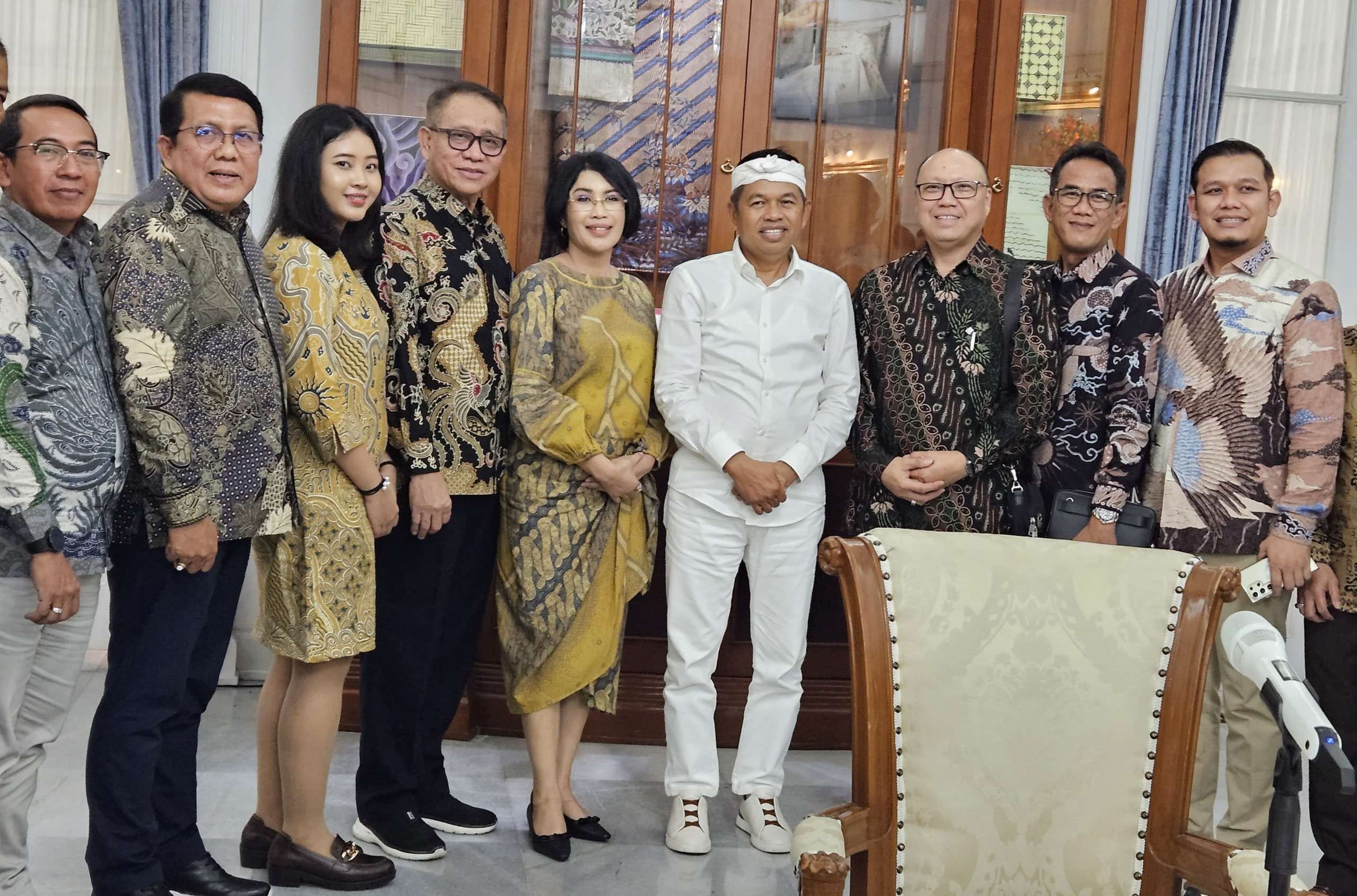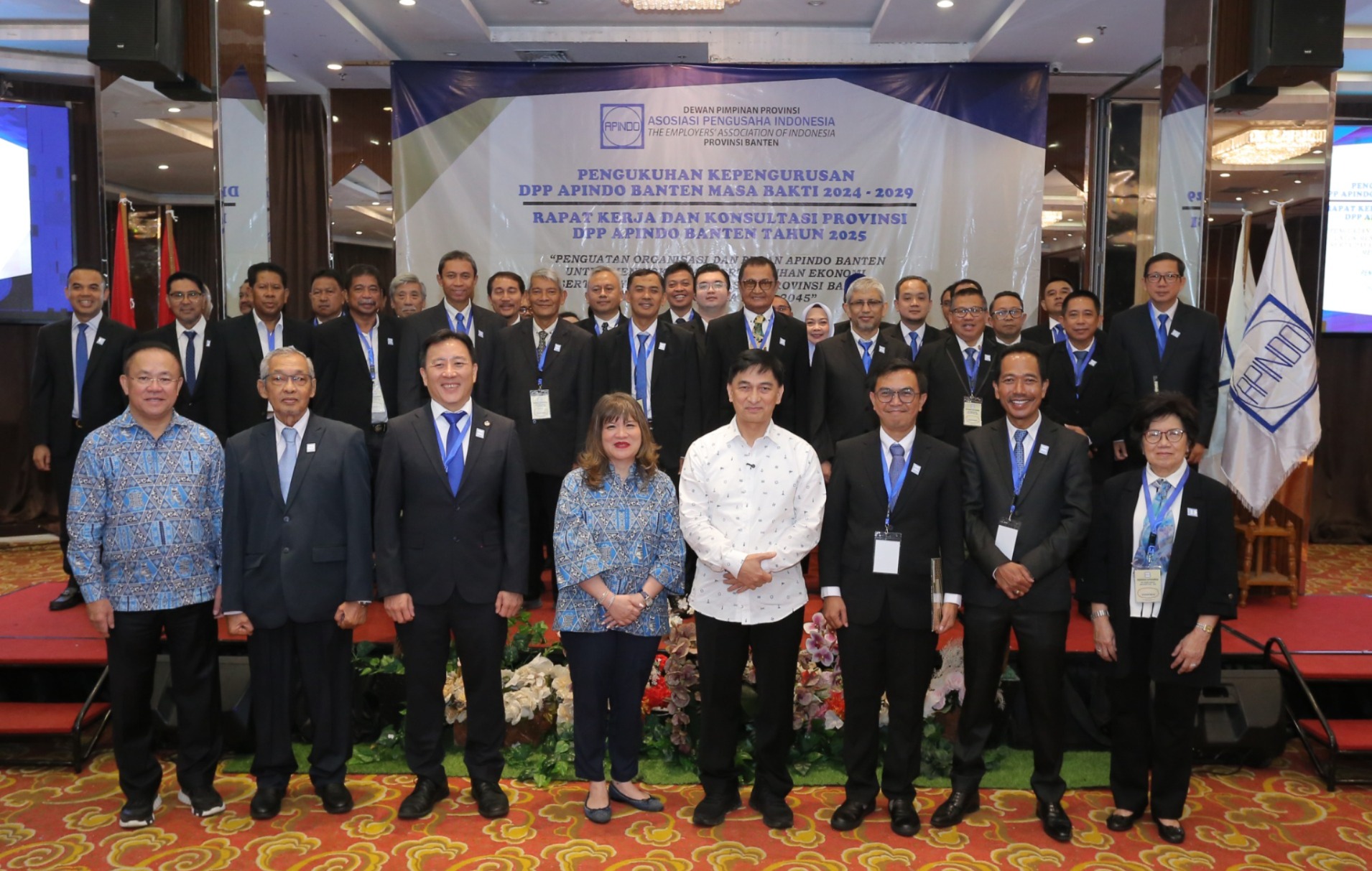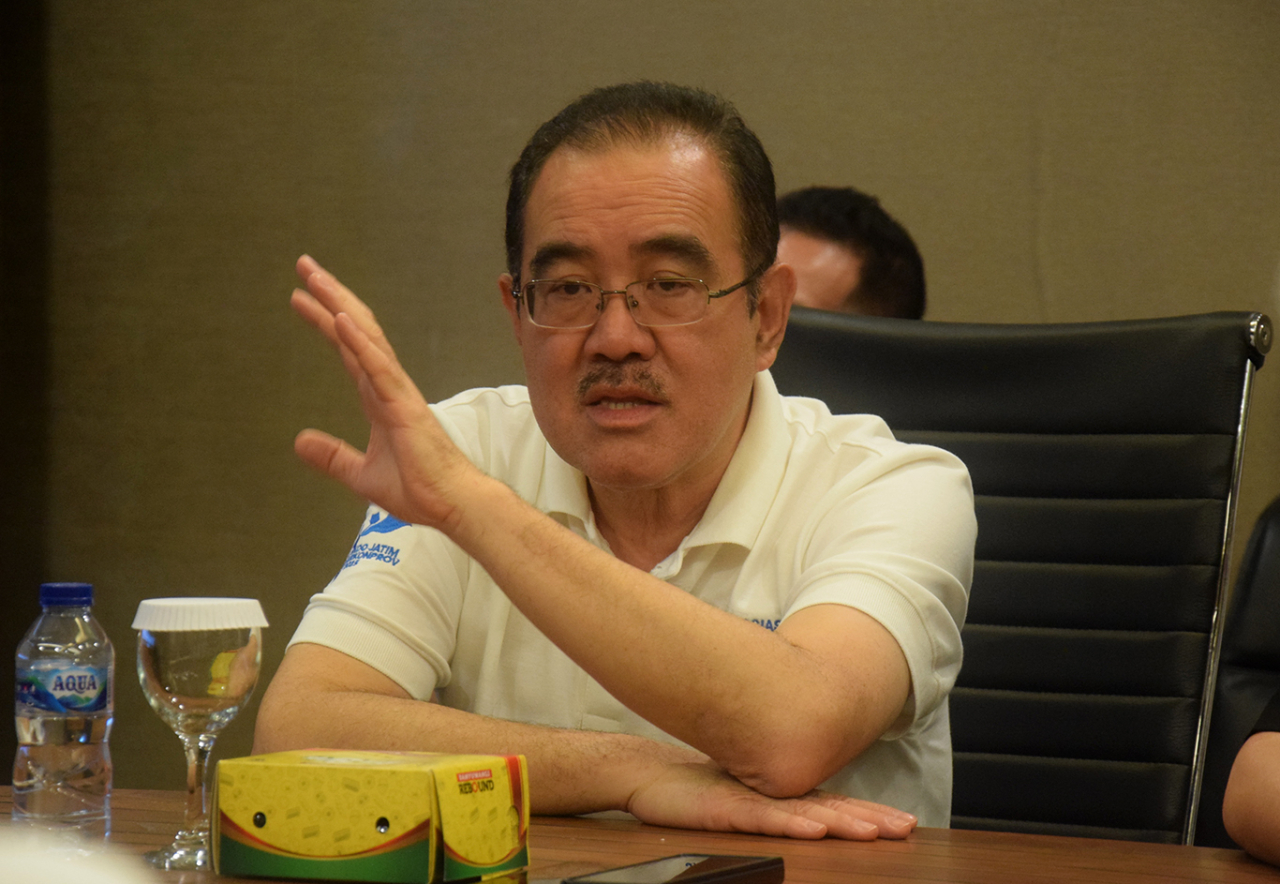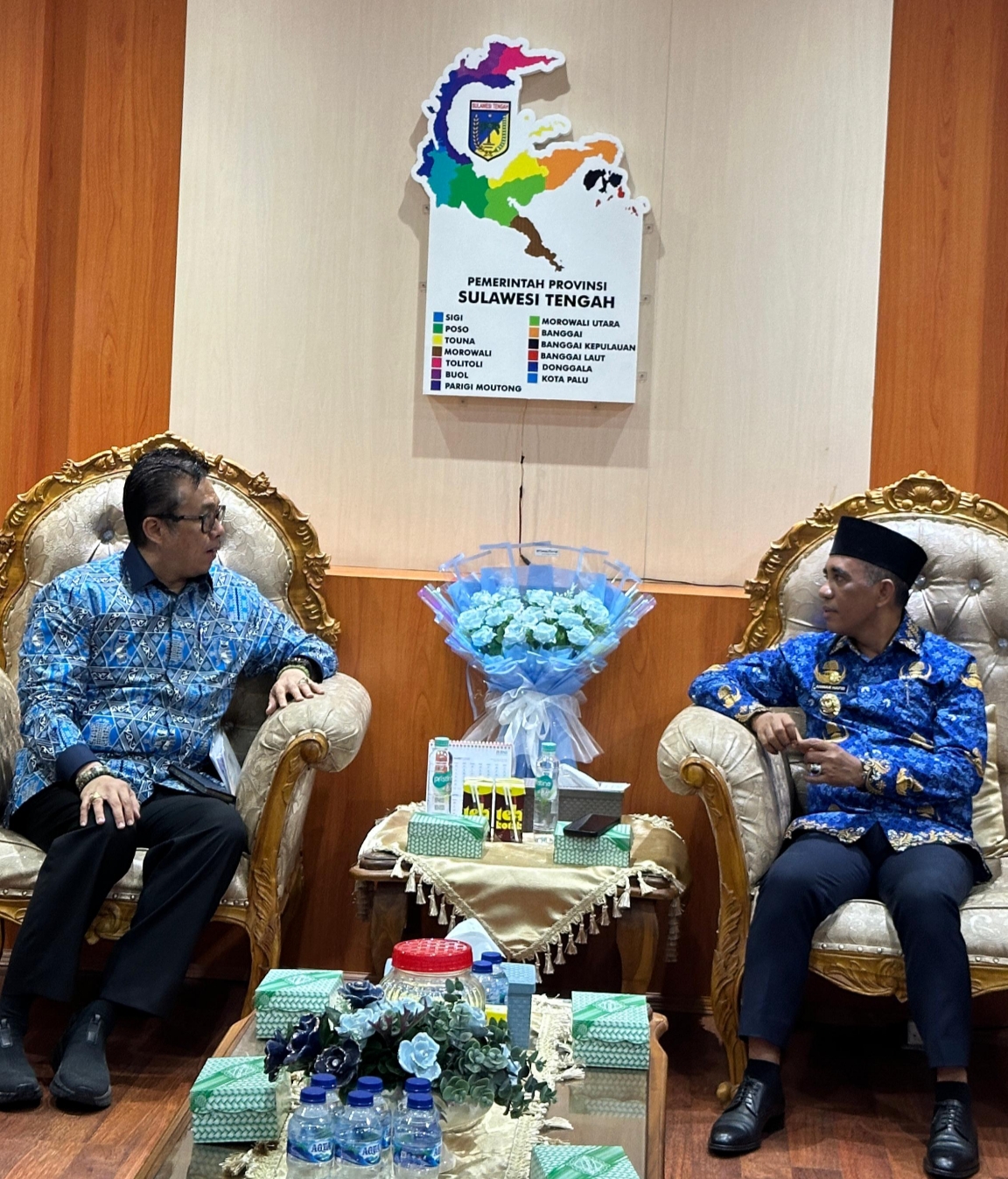To Enhance Business Climate, West Java APINDO Meets with Governor Dedi Mulyadi
Friday, 18 April 2025
Bandung – The West Java chapter of the Indonesian Employers’ Association (APINDO) has expressed hope that the West Java Provincial Government will provide supportive policies to maintain the region’s industrial competitiveness amid global uncertainty, particularly in light of recent import tariffs imposed by the United States.
This concern was conveyed during a formal meeting between APINDO West Java and West Java Governor Dedi Mulyadi on Tuesday, April 15, 2025.
"This policy is expected to significantly affect industrial dynamics in West Java, considering that the U.S. is a major export destination for many of West Java’s leading sectors. These changes require strategic adaptation by business players, along with supportive regional policies to ensure continued competitiveness,” said West Java APINDO Chairwoman Ning Wahyu Astutik in a statement on Thursday (May 17, 2025).
Ning also emphasized the importance of legal certainty for businesses, particularly in wage policies. She criticized the inconsistent implementation of regulations in the province, citing the 2025 West Java Sectoral Minimum Wage (UMSK) decision that was revised under field pressure despite already being officially issued. She warned that such uncertainty could lead to investor distrust.
Ning further urged the resolution of the prolonged annual wage dispute that has persisted for over a decade.
“We hope the government will act as a mediator and bridge builder, because after all, workers are valuable assets. APINDO West Java believes the Wage Council has lost its function, as wage decisions are now made outside formal forums, even though they should be determined through deliberation within the council comprising employers, government, trade unions, and academics,” she explained.
APINDO West Java also called for restoring the legitimacy and constructive role of the Wage Council.
During the meeting, Ning also reported recent industrial relations conflicts, such as one involving a company in Cirebon and a similar case in Sukabumi. In both incidents, companies opted to shut down operations due to prolonged labor protests, causing massive layoffs and social-economic disruption, including order cancellations by clients.
"APINDO West Java hopes that under Governor Dedi Mulyadi’s leadership, a more harmonious industrial relations climate can be established in the province,” she added.
Ning proposed several strategic synergy initiatives between businesses and the government to boost West Java’s economy. These included encouraging factories to wear traditional West Java batik on specific days to support MSMEs and local culture, revitalizing the raw material supply chain for garments and footwear industries by partnering with global brands, and integrating the industrial and tourism sectors through local employee travel programs.
She also suggested improvements in tax administration to ensure that taxes are paid in West Java, as well as reforms in labor recruitment to eliminate exploitative broker practices that harm both job seekers and companies.
APINDO West Java also expressed appreciation for Governor Dedi Mulyadi’s commitment to maintaining a conducive business climate, especially regarding business security.
Governor Dedi Mulyadi, addressing labor relations, noted that many issues stem from recruitment practices carried out by companies themselves. He pointed out that many workers involved in protests were from outside the province, recruited by HR departments from their own hometowns.
As a solution, the Governor stressed the need for a more locally-focused recruitment system and requested that APINDO members coordinate any hiring with the provincial manpower office.
"Just report to the provincial labor department and use the app developed by the provincial government. Local workers will be prioritized, and only if none are available will recruitment be extended beyond the region,” said Governor Dedi.
He also highlighted the importance of environmental responsibility, urging businesses not to pollute rivers or surrounding areas. “Environmental damage will eventually backfire on society and the businesses themselves,” he warned.
The Governor called on all industries to manage their waste responsibly and in accordance with regulations.
Additionally, Governor Dedi requested greater fiscal contributions from businesses operating in West Java. He pointed out that many large companies pay taxes in Jakarta, while West Java bears the environmental, social, and traffic burdens. He encouraged companies to move their tax identification numbers and administrative centers to West Java so the local population could benefit directly from infrastructure, education, and healthcare improvements.
He also criticized the use of out-of-province license plates on industrial vehicles and encouraged companies to register operational vehicles—including employee buses, HR cars, and service vehicles—with West Java plates as a sign of commitment to the region.
Governor Dedi pledged to support business proposals and initiatives, but reminded that success depends on active participation from the business community. He called on employers to become true partners and make tangible contributions to West Java's development.
The provincial government is currently preparing a strategic policy package to be launched on April 18, 2025, aimed at ensuring industrial sustainability in West Java. Governor Dedi expressed optimism that the policies will foster growth in the regional business sector.
APINDO West Java welcomed the Governor’s response, and during the meeting, Chairwoman Ning Wahyu Astutik directly called on business leaders to commit to supporting the Governor’s vision for the province.
Source: www.rri.co.id









